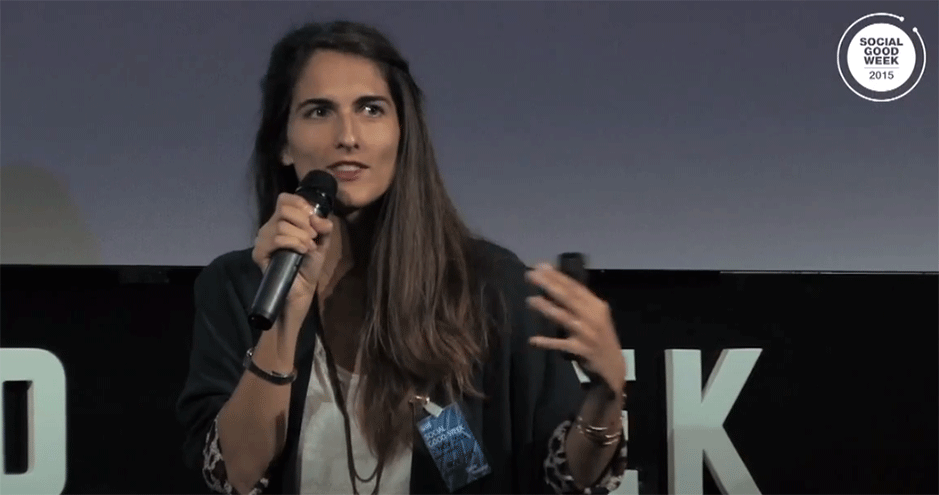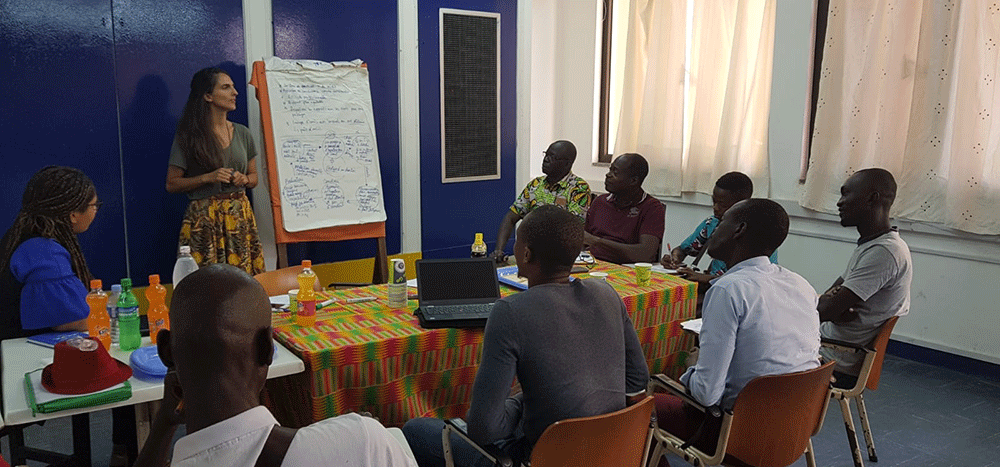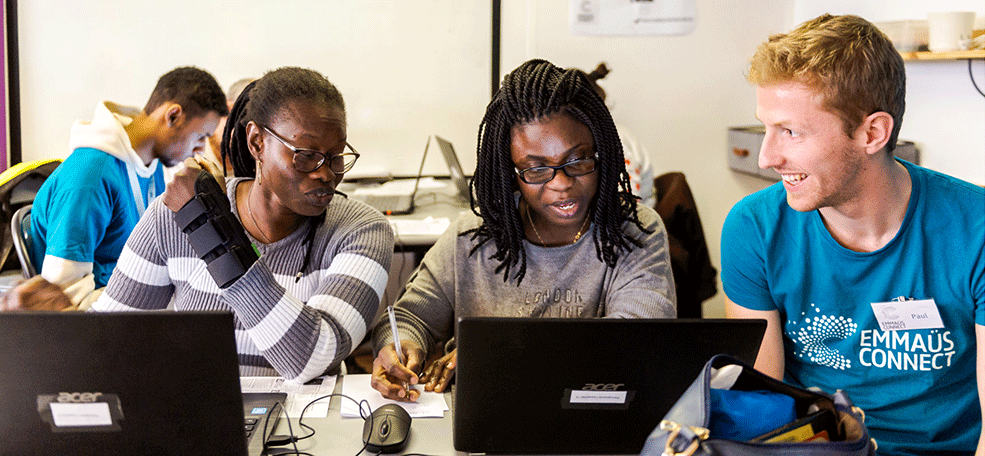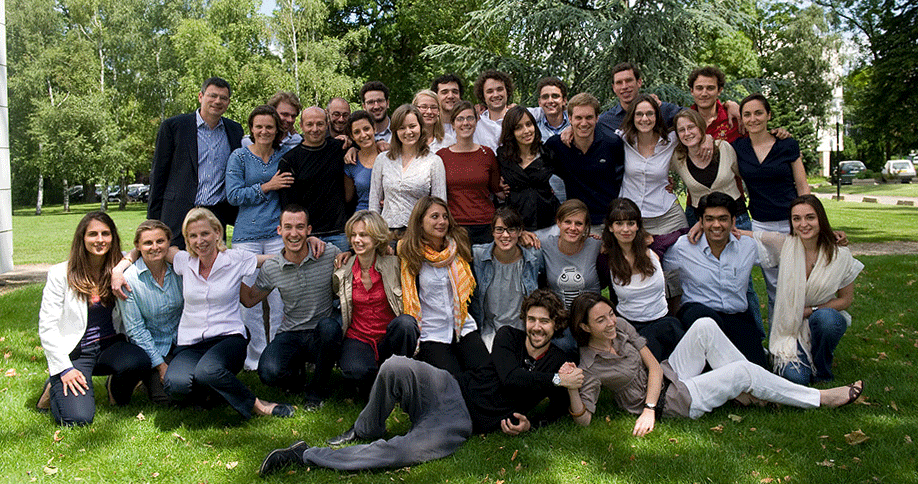Alumna Margault Phelip, perfect alignment between values and purpose
Margault Phélip, HEC alumna 2008 is now CEO of Impact Studio, and Manager at Archipel & Co. She has kindly accepted to answer our questions with authenticity and passion. Focus on her career path and personal adventure on the road of social innovation.

The real motivation is simply to devote myself to what I am good at, and what fulfills me, because I have always considered that when you are lucky enough to graduate from HEC, you must give yourself the means to do what you love as a career.
What is your background and can you tell us what was your motivation to work on this field?
I graduated from HEC in 2008, and I started by spending a few months in a social circus in Costa Rica. My goal? To decide between a business and a social career. The conclusion was obvious: I don't want to decide. I then had the chance to join the team of the Inclusive and Social Business certificate at HEC, and thus to participate in theoretical reflections on the inclusive economy while meeting fascinating people. This is how I switched to Emmaüs Défi in 2010, an NGO dedicated to the integration of homeless people. A clear-cut choice, but so wise. I then co-founded Emmaüs Connect in 2013, dedicated to digital inclusion in France, and WeTechCare in 2015. I then joined the Archipel&Co adventure in 2018, to get closer to the business world, and contribute to a larger scale transition. My motivation was born as a teenager when I created a small NGO in Mali, and this passion for commitment gradually mutated into a professional aspiration, which my studies at HEC tinged with an entrepreneurial desire. But the real motivation is simply to devote myself to what I am good at, and what fulfills me, because I have always considered that when you are lucky enough to graduate from HEC, you must give yourself the means to do what you love as a career.
What is the best impact you achieve and that you are proud of?
I think that my greatest pride is the indirect impact that Emmaus Connect has had by accelerating a public digital inclusion strategy in France. Although it was a small association (50 employees), Emmaus Connect has had a major impact thanks to its operational legitimacy and, above all, its fight to raise awareness among public and social decision-makers. In this way, we have co-constructed in 2017 a public policy with the government that makes digital inclusion not just a small bonus of social action, but a key dimension of social and economic cohesion in France, deployed by thousands of other local stakeholders since.
What was the greatest difficulties or constraints that you faced?
I can't really say that I have faced any major difficulties. The obvious constraint when undertaking social work is not having enough means to act at the level of our ambitions, and to always balance short-term impact and long-term vision. We also have to make fair trade-offs between the search for impact and the challenge of economic sustainability, and this trade-off is not always obvious.
We also have to make fair trade-offs between the search for impact and the challenge of economic sustainability, and this trade-off is not always obvious.
What are you working on right now?
At Archipel&Co, our ambition is to accelerate the transition towards an inclusive economy, by accompanying large companies, social start-ups, NGOs and public authorities. I help players such as leboncoin, la Banque des Territoires, Synergie Family, to design and implement new activities with a strong social impact. The year Covid was also a year of adventures, with the direction of a huge project of launching a village for social innovation, called Epopée, (12 000m² in Marseille, which opened in February 2021). It led to the creation with Archipel&Co and Synergie Family (met via HEC, by the way!) of a new social enterprise, Impact Studio, which I manage, and which has the ambition to create uncommon projects for our territories: to bring out emblematic places that bring people together and innovate in the heart of cities, to highlight the invisible talents of our economy (SMEs, organic citizen movements), and to connect them with the large organizations of our system. We still have some great challenges ahead of us!
What is the contribution of your activity to the creation of a more inclusive economy and to the solutions to the current crisis?
Our mission is to connect large groups with the societal issues that concern them, and with other actors of change (associations, public services, citizen movements, artists…), in order to make inclusive projects really happen. The ambition is to deploy them on a large scale. Of course, we don't always succeed, but our requirement is that even a pilot project has to be an inspiration and change for our partners. The current crisis has also strengthened our activities in France, particularly in the areas of revitalization of territories and social and economic resilience. We are a small structure, but a real gas pedal for our clients!
How has HEC helped you or contributed to your career/professional path?
Finally, HEC was quite decisive in this career, on three levels. First, it was on a workshop during my CEMS Master that I discovered with enthusiasm the existence of the intellectual currents of social business. As early as 2008, at the beginning of these trends, I found professors to encourage me in this approach, and HEC also gave me the chance not to turn away from this desire, by hiring me in the Inclusive and Social business team where I worked for a year. But the biggest impact I think is that graduating from HEC gave me confidence in my professional future, and therefore the courage to choose a path that was less clear-cut but aligned with my aspirations. And of course, at that time, working at Emmaüs while having studied at HEC gave me a touch of originality that has always contributed to my professional credibility! That's why today I'm happy to continue to invest myself in HEC, by teaching students at the Certificate.
Which advice would you give to anyone who would like to make a social and environmental impact?
It's important to do what you love, that's how you progress, and that's where you're good. I feel privileged to have always done what I loved, to have been 100% invested in my work, when my friends around me were making sacrifices for the future of their careers.
Moreover, these jobs are no longer a risky choice. The social and environmental impact markets are expanding rapidly and becoming more professional, so it is possible to develop exciting careers that are not at all excluding. The skills acquired are very transversal, and specific expertise is increasingly valued in more traditional sectors, at more and more decision-making levels. I sometimes have the impression that it's like digital marketing: experienced profiles in the field are incredibly valued!
Know more about The Inclusive Economy Center of the S&O Institute


